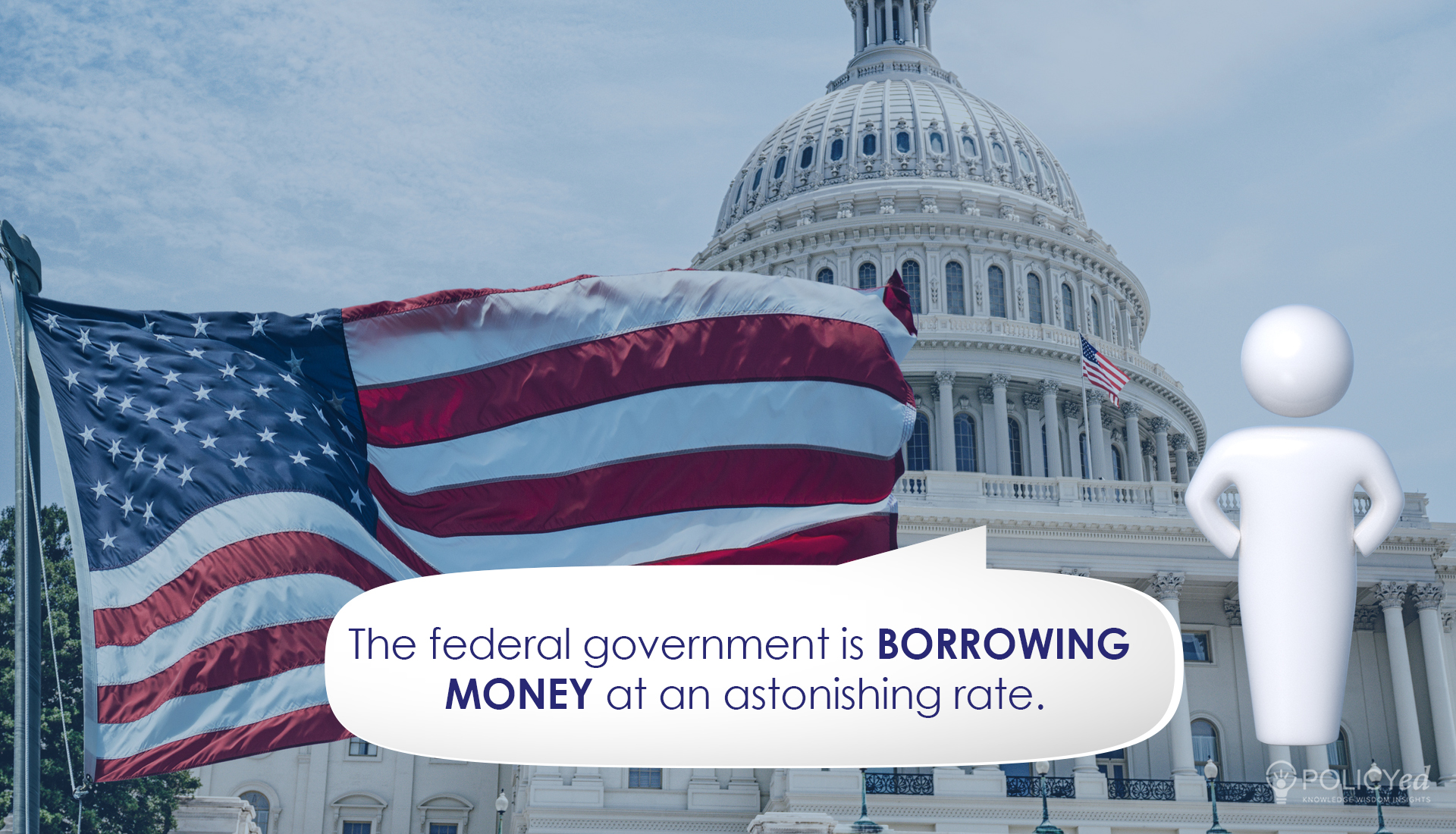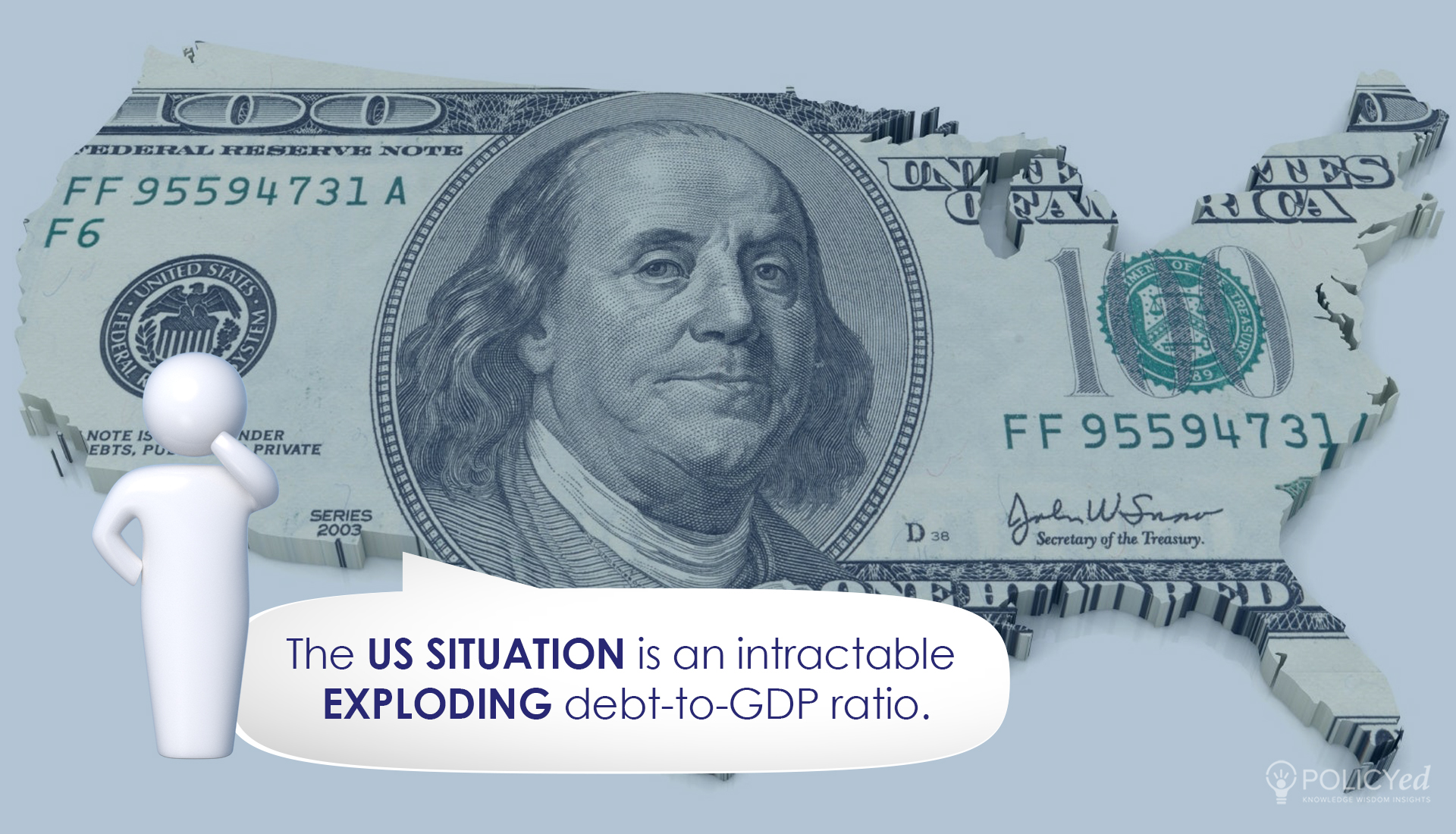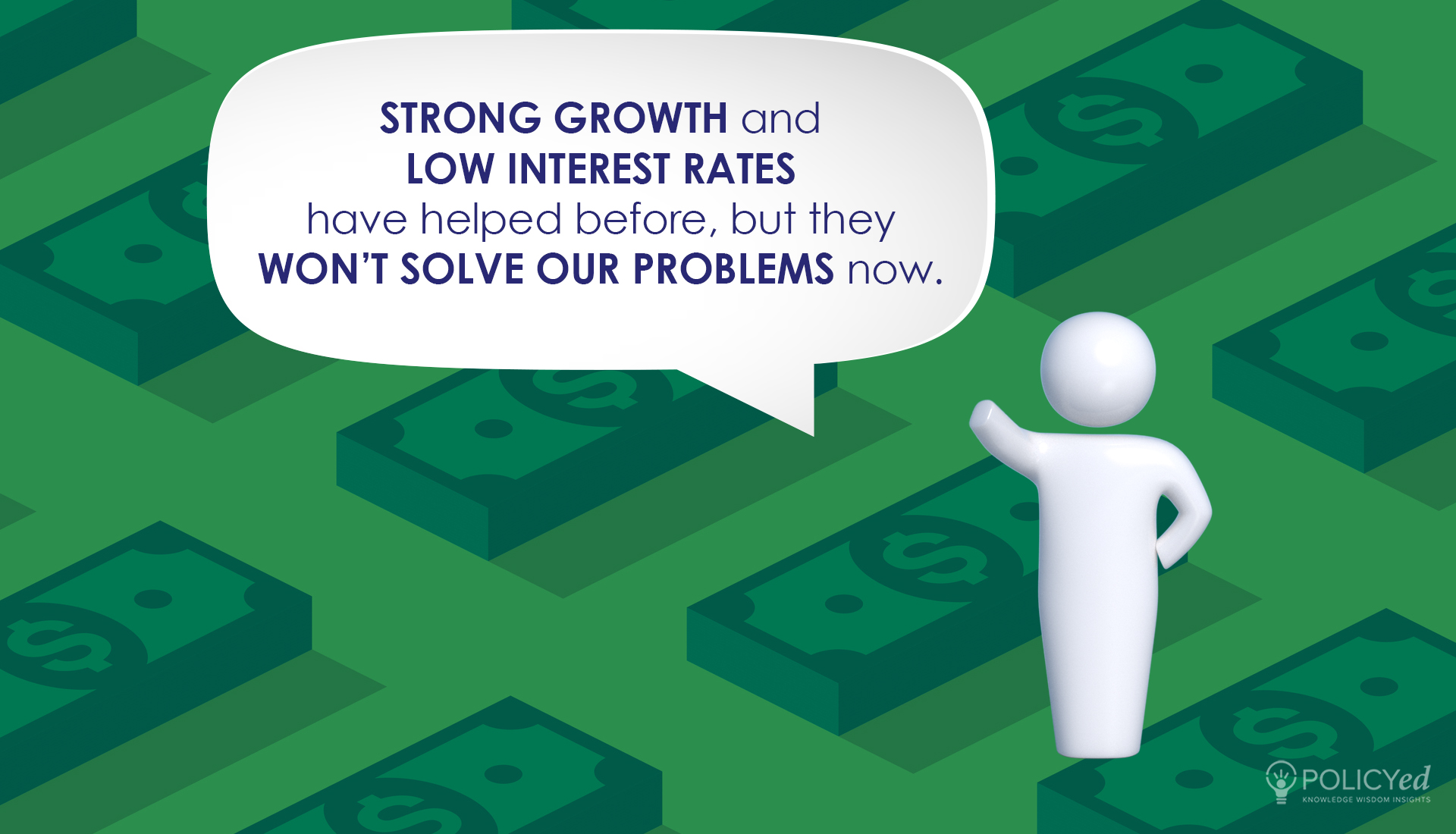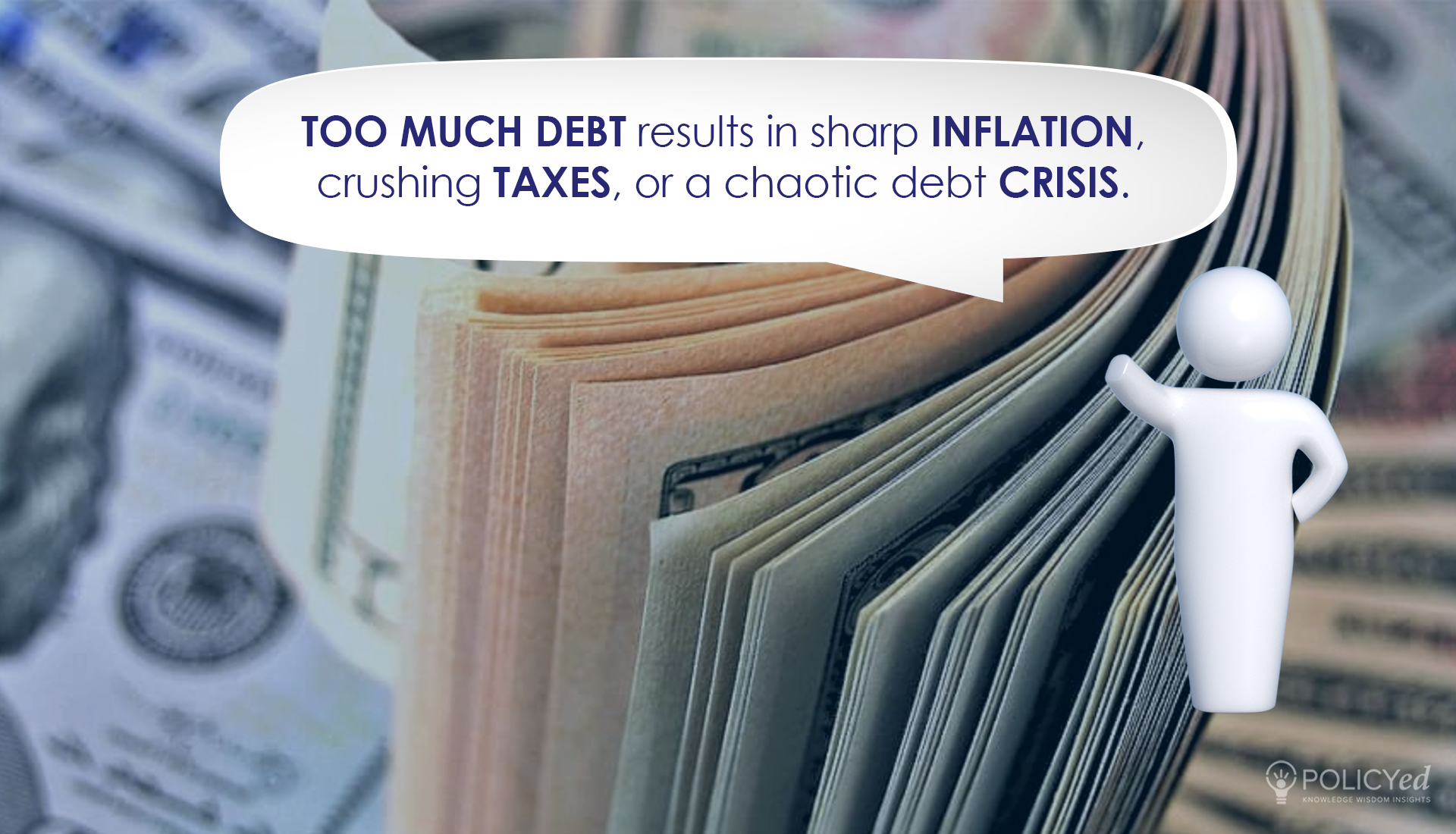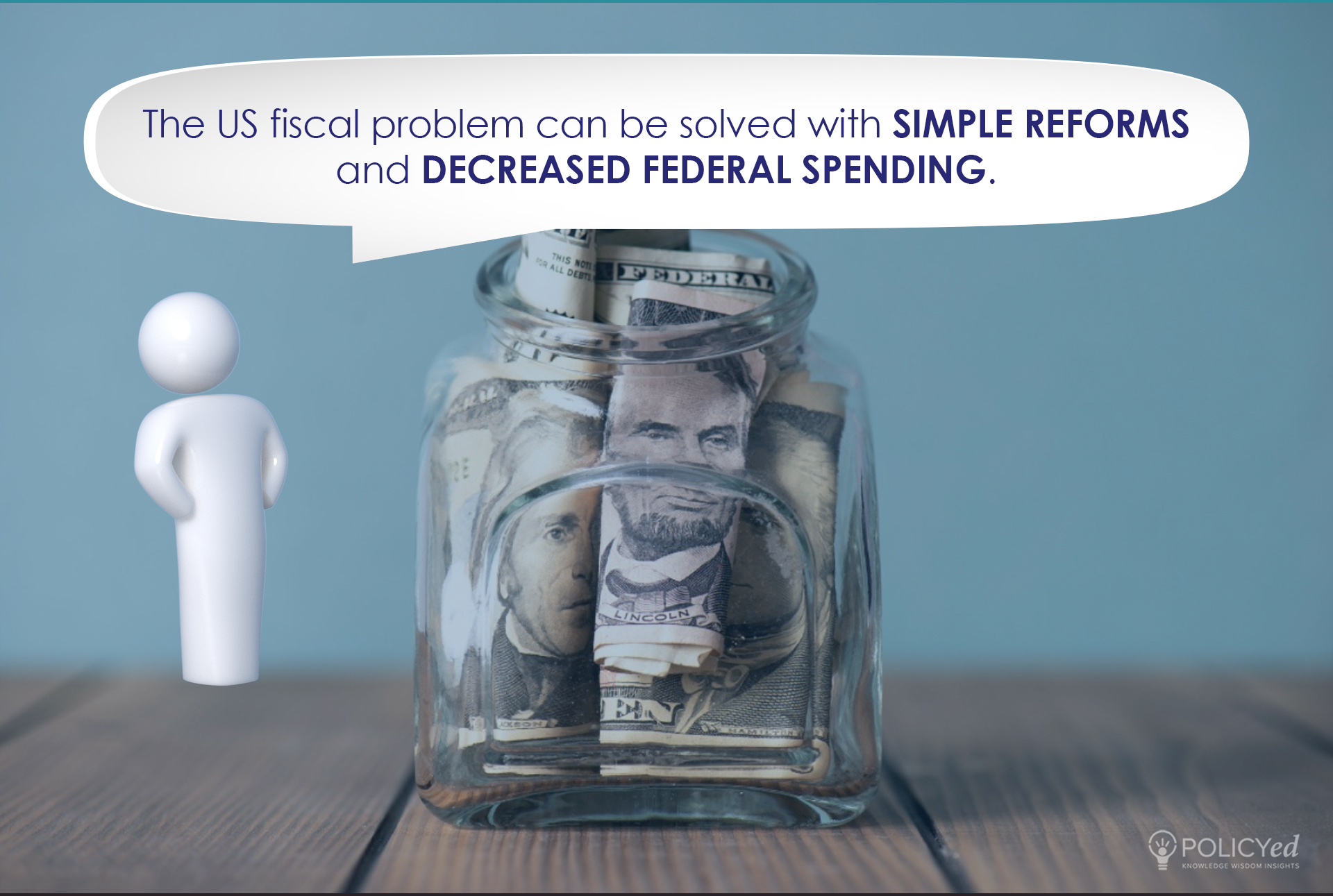Facts At Your Fingertips
Continuing on the Current Path
The interest rate that the government currently pays is lower than the rate of economic growth. If that lasts, it is possible that the government can just roll over its debt, borrowing new money to pay interest. In this scenario, debt will grow forever, but the economy will grow faster, so debt will fall relative to the size of the economy. Proponents of government spending advance this possibility as a justification for borrowing even more, mostly to send money to people and businesses.
Facing Reality
But the story of achieving ever-shrinking debt despite increased spending does not apply to the actual US fiscal situation. Growing out of debt after a big borrowing binge requires that, after the big borrow, taxes equal spending for a generation or two while the debt-to-GDP ratio slowly declines back to normal. The US situation is an intractable exploding debt-to-GDP ratio, not a slowly declining ratio that we might bump to a higher level with a “one-time” expansion.
History’s Lessons
Strong growth and low interest rates did help the US to reduce debt relative to GDP following World War II. But the experience was not painless. We had two big bouts of inflation and a major crisis in the early 1970s, which effectively wiped out a lot of debt. There was financial repression—you couldn’t buy stocks abroad or even change much currency. And we experienced 4 percent and higher growth, more than ever seen before in history, and more than the anemic 2 percent growth facing us now.
When the End Is Near
One might suggest riding the low-interest-rate bubble while it’s here and fix it later if debt seems to cause trouble. But debt problems do not resolve quietly and predictably. Too much debt results either in sharp inflation, crushing taxes, and deep benefit cuts, or in a chaotic debt crisis, which would be a financial catastrophe. The end comes quickly and unexpectedly. Markets smell a crisis coming, so they charge higher interest rates. Higher interest rates worsen the deficit. That makes the crisis arrive faster. And unlike the crises that have hit Greece and Italy, which were aided by Germany, there is no country to bail out the United States.
Taking Steps Forward
Solving the US fiscal problem is not that difficult. Simple reforms of our chaotic tax system can produce more revenue with less economic damage. Simple reforms of our entitlements can direct money to people who need it much more effectively. Congress and the administration must stop spending as if money can be printed or borrowed with no consequence, and return to spending money as if taxpayers actually have to pay for it, now or later. Because they do.

